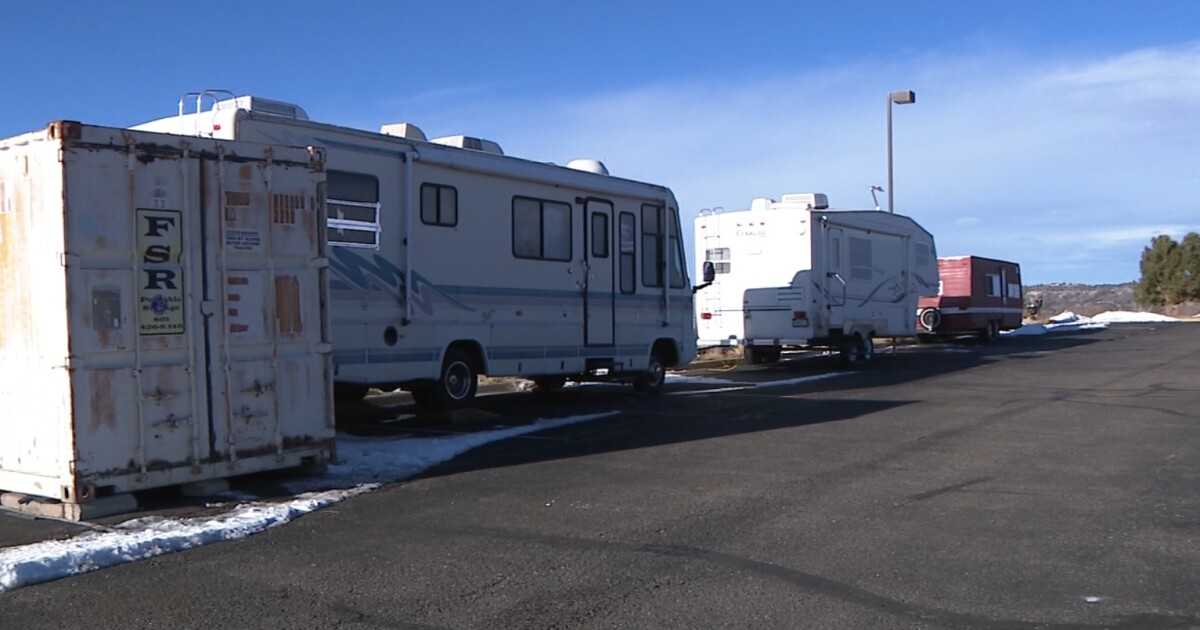A federal judge ruled that the Town of Castle Rock cannot enforce a land use code against The Rock evangelical church for providing temporary shelter for unhoused people on its property.
U.S. District Court Judge Daniel D. Domenico handed down the ruling on Friday. The decision granted the church a preliminary injunction.
The church sued Castle Rock earlier this year after it received a “letter of determination” from the zoning manager stating that the church was violating zoning regulations and that it couldn’t park RVs used as residences on site.



How is this church acting like it is above the law in this specific instance?
It used the legal system to get a preliminary injunction against the enforcement of town land use code. Seems like it followed the law and the process is playing out as intended.
The town’s land use code IS the law! This activity isn’t permitted. Bring the homeless into the church, don’t turn it into a trailer park.
This court just granted the church an injunction preventing enforcement of the law. Although this is America 2024, laws don’t seem to matter anymore.
Can’t argue with that understanding of the US legal system.
Court’s Decision
The Church has carried its burden on this question. As the Tenth Circuit has noted, a substantial burden exists for the purposes of RLUIPA where the government “prevents participation in conduct mo- tivated by a sincerely held religious belief.” Sebelius, 723 F.3d at 1138 (10th Cir. 2013). Although the Town alludes to a bit of a disconnect between the Church’s assertion that it is compelled to allow the poor to “live among you” and its desire to have people live in RVs on Church grounds rather than in homes and residential areas where Church mem- bers live, it does not ultimately dispute the sincerity of the Church’s assertions on this point, which are supported by sworn affidavits. See Doc. 8–4 at 24, 38. And while the Town may eventually show that the Church’s beliefs are not in fact sincere or that there is a non-religious motivation behind the desire to allow people to live on Church property, it has not done so at this point. See Grace United Methodist Church, 451F.3d at 648 (“The jury found that Grace United had failed to prove the proposed operation of the daycare center was a sincere exercise of religion under RLUIPA.”).
To me, live among you means in the church, not an RV on the outer perimeter of the church lawn, 400 feet from the property line.
I also take issue with the use of the RLUIPA to argue that churches can essentially do whatever they want as long as it’s a sincerely held religious belief. That is as absurd as Kanye West claiming he should pay no tax because his album is preaching and he’s actually operating a church rather than just being an asshole.
I’d like to see RLUIPA amended.
So you are admitting there is a conflict between two laws that needs to be reconciled.
I propose creating a system… we could call it the “law conflict figuring out process or “LCFOP” for short. It would be a perfect place for people to voice thoughts that come after phrases like “To me a law means…”
It’s a crazy idea I know.
Edit: Also, this last comment you made at least digs into the substance of the issue in a way your initial reactionary comment does not. Thank you for adding to the conversation about the rights use of religion as a Trojan Horse for conservative legal positions.
I didn’t know about the RLUIPA until I read the doc, so I didn’t realize there was even a conflict. I thought this was pure judicial activism.